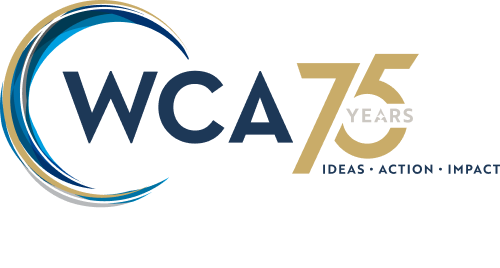The health care industry is entrenched as a backbone of Westchester’s economy. With the rapid expansion of hospitals and health care facilities, thousands of new jobs are expected to be created in the coming years.
Health care jobs are generally competitive and well-paying. Yet, many remain unfilled.
About 36% of 11,000 current job openings in Westchester are in health care, according to Indeed.
To combat these shortages, the county and state have partnered with educators and community organizations to train job seekers for entry-level positions and introduce students and young people to the wide range of careers available in health care. Part of the challenge is explaining that investments in education and training will pay off.
Jason Chapin, workforce development director at the Westchester County Association, an economic development and business advocacy group, said the goal is to bridge the gap between employers, job seekers and training providers. He’s involved in several of the programs.
“Health care jobs are a great way for even a recent high school graduate to get in,” Chapin said. “We want to share with students and job seekers that there are short-term training options that can lead to health care jobs that pay well that have good benefits and career advancement opportunities.”
Westchester hospital expansions spark rapid job growth
Worker shortages in health care predated the pandemic, but have since been exacerbated by worker burnout, paying gap, an aging workforce and a growing demand for medical services.
In 2024, health care ranked as the top employment sector in Westchester. About 11% of all businesses in the county were in health care and social services, employing nearly 16% of the local workforce.
In New York state, the health care industry was the third largest employer in 2023. The state Department of Labor projected a 27% increase in health care jobs from 2020 to 2030.
As hospitals and health care facilities continue expanding across the region, the pace of job creation is expected to accelerate. Major hospitals, including White Plains Hospital, Westchester Medical Center, NewYork-Presbyterian, Phelps Hospital and Northern Westchester Hospital, are either constructing new buildings or planning expansions that will generate thousands of new jobs.
White Plains Hospital is actively hiring as it expands services and prepares to build a 10-story hospital tower that will house a new emergency department and hundreds of private patient rooms. NewYork-Presbyterian is ramping up its workforce ahead of the opening of a new outpatient center this fall, a project expected to create some 1,000 jobs. New York Blood Center is also increasing staffing for its recently launched campus in Rye.
Most openings are for nurses, clinical professionals, and administrative and technical staff, but there is also a need forsupporting roles such as drivers and security officers.
Certain positions are difficult to fill, such as medical assistants, radiology technicians and billing staff. These positions are often either entry-level with limited opportunities for advancement or they may require prior experience without offering wages that match the investment in training.
To close the gap, employers are taking several steps: covering the cost of employee training, offering sign-on bonuses, and offering flexible schedules to prospective workers.
Programs help Westchester students, job seekers gain new skills and perspective
High-demand health care jobs in the region include nursing assistants, clinical medical assistants, practical nurses, respiratory therapists, surgical technicians and radiology technicians.
While some of these positions require a bachelor’s degree, others such as nursing assistants only require a three-month certificate. According to a 2023 Westchester County Association career guide, the median salary for nursing assistants was $38,438.
To help meet the demand, Westchester County launched the Health Care Talent Pipeline program in 2022. The program covers tuition costs and stipends for disadvantaged participants to complete a 180-hour training program, preparing them for certification as clinical medical assistants, nursing assistants and medical administrative assistants. The program has already helped more than 200 participants — mostly Hispanic and Black women — secure jobs in the health care field.
Yari Sanchez, who works at the front desk at a family clinic in Port Chester, enrolled in the program in March. After three years in her current role, post high school, she is eager for a new opportunity. She hopes to become a medical assistant to help more patients.
Betsy Evans, coordinator of adult and continuing education at Southern Westchester BOCES, who administers the program, said participants range from recent high school graduates to seniors looking to change careers.
“What the pipeline program is trying to achieve is to remove barriers, provide the necessary training and prepare them to transition into employment,” Evans said.
Additional programs are also helping to bridge the employment gap. Healthcare Career Launch Project, funded by New York state, trains job seekers for entry-level positions.
Efforts are also being made in schools to introduce students to health care careers and alternative pathways into the industry.
At a recent health care career event at Mount Vernon High School, health care professionals and educators shared their career journeys and highlighted available training opportunities. Some students were surprised that there are short-term training programs that provide entry into the health care field without the need for a traditional college path.
When an educator asked who would be interested in earning $40,000 after three months of training to become a nursing assistant, several hands shot into the air.
Desirae Bailey-McCalla, a junior who aspires to become a dermatologist, said the event helped her see that not all health care careers require a college or medical degree.
“I already knew health care comes in different forms, but I didn’t realize you can just take a program and become a medical professional,” Bailey-McCalla said, referring to an EMS training program. “I thought they’d have to go to college or medical school. But no, it’s only 15 weeks.”

